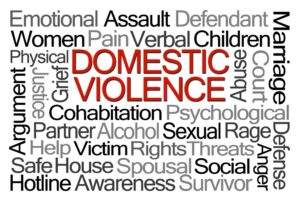Domestic violence is a grave concern affecting numerous families across the United States, including Florida. The emotional, physical, and psychological harm inflicted on victims of domestic violence can be devastating, and it often has far-reaching consequences that extend to various areas of their lives.
Regarding family law cases, domestic violence can significantly impact legal proceedings, influencing divorce, child custody, visitation rights, and more. Here, you can learn more about the profound impact of domestic violence on family law cases in Florida, shedding light on the legal measures available to protect victims and ensure the well-being of their families.
Defining Domestic Violence
Domestic violence can take on many different forms. Some of the most common include the following:
- Physical Abuse: Domestic violence often involves physical acts such as hitting, slapping, or choking.
- Emotional Abuse: This type of abuse includes manipulating, belittling, or threatening behavior aimed at controlling the victim.
- Sexual Abuse: Domestic violence may involve sexual assault or coercion within an intimate relationship.
- Economic Abuse: Perpetrators of domestic violence may exert control by limiting the victim’s access to financial resources.
- Psychological Abuse: This form of abuse includes constant criticism, humiliation, and intimidation, causing significant emotional distress to the victim.
The Prevalence of Domestic Violence
Domestic violence is an alarming reality affecting countless Florida families. Understanding more about it can help you better understand the impact it can and does have on families throughout the state.
It is estimated that in Florida, domestic violence affects many families each year, with thousands of reported cases. Many victims of domestic violence do not report the abuse due to fear, shame, or concerns about the repercussions, resulting in an underrepresentation of the true extent of the problem.
Grounds for Divorce Based on Domestic Violence
When it comes to divorce cases marred by domestic violence, understanding the grounds for divorce is crucial. Here, you can learn more about the impact of domestic violence as grounds for divorce in Florida, examining both the state’s no-fault divorce laws and the role domestic violence plays in fault-based divorces.
- Florida’s No-Fault Divorce Laws: Florida allows for no-fault divorces, where spouses can seek divorce without proving fault. However, domestic violence can still be a factor considered by the court.
- The Role of Domestic Violence in Fault-Based Divorce: In fault-based divorce cases, domestic violence can serve as grounds for divorce, demonstrating a valid reason for the dissolution of the marriage.
Protective Measures During the Divorce Process
Protective measures are paramount when domestic violence is a factor in a divorce. Here, you can learn more about protective measures during the divorce process in Florida. From obtaining restraining orders to establishing temporary custody and support arrangements, you will find the legal steps available to ensure the safety and well-being of victims and their children as they navigate the complexities of divorce in the presence of domestic violence.
- Obtaining a Restraining Order: Victims of domestic violence can seek a restraining order to protect themselves and their children from further harm during divorce proceedings.
- Temporary Custody and Support Arrangements: In domestic violence cases, temporary custody and support orders can be sought to ensure the safety and well-being of the victim and any children involved.
Property Distribution and Domestic Violence
When domestic violence is present in a divorce case, the fair distribution of property becomes even more complex. Here, you can learn about the intricate relationship between property distribution and domestic violence in Florida. From exploring the impact of domestic violence on equitable distribution to examining strategies for safeguarding assets and financial resources, there are unique considerations and challenges faced by victims of domestic violence when dividing marital property during divorce proceedings.
- Impact on Equitable Distribution: Domestic violence can be considered when determining the division of marital property, potentially influencing the allocation of assets and debts.
- Safeguarding Assets and Financial Resources: Victims of domestic violence may need to protect their financial resources from further abuse, such as freezing joint accounts or seeking court-ordered financial protections.
The Best Interests of the Child Standard
In family law cases involving domestic violence, the well-being and safety of children take center stage. When determining child custody arrangements, the court applies the “Best Interests of the Child” standard, a vital framework to protect children’s welfare.
It’s important to understand the significance of this standard in the context of domestic violence cases in Florida. By examining the factors the court considers and the measures taken to ensure the child’s safety, we gain insight into how the legal system strives to prioritize the best interests of children affected by domestic violence.
- Ensuring the Safety and Well-being of the Child: The court prioritizes the safety and well-being of the child when making custody determinations, taking domestic violence into account.
- Factors Considered in Determining Custody: The court considers domestic violence allegations, evidence, and the impact on the child’s physical and emotional well-being.
Challenging Custody in Cases of Domestic Violence
Challenging custody in domestic violence cases is a critical aspect of family law proceedings that aims to safeguard the well-being of the children involved. When domestic violence is present, it is imperative to protect children from potential harm and create a safe environment for their upbringing.
If you are in a situation where domestic violence is a factor, complexities may be involved when challenging custody in Florida. Because of this, it is important to gather evidence, such as police reports, medical records, and witness testimonies, which can help substantiate abuse claims. Additionally, we discuss the role of expert witnesses and professional evaluations in assessing the impact of domestic violence on children and providing valuable insights to the court. By understanding the legal strategies and considerations involved, victims of domestic violence can effectively navigate the custody process and work towards securing a safer and healthier future for their children.
In some cases, expert witnesses, such as psychologists or social workers, may be called upon to evaluate the impact of domestic violence on the child and provide recommendations to the court. Your attorney can let you know if this is necessary for your situation.
Supervised Visitation and Parenting Plans
Supervised visitation and comprehensive parenting plans play a crucial role in ensuring the safety and well-being of children in cases involving domestic violence. In Florida, when domestic violence is a factor, the court may order supervised visitation to protect the child from potential harm during interactions with the abusive parent. This arrangement involves a neutral third party or a professional supervisor who monitors and oversees the visits, ensuring the child’s physical and emotional safety.
Spousal Support and Domestic Violence
Divorce cases involving domestic violence require careful consideration of spousal support, also known as alimony, to address the financial impact on victims. Domestic violence can have long-lasting effects on a victim’s economic stability and earning capacity, making spousal support crucial in ensuring their recovery and independence.
Impact on Alimony Awards
When determining spousal support, the court considers various factors, including the duration of the marriage, the standard of living during the marriage, and the financial resources and earning potential of both parties. In domestic violence cases, the court recognizes the adverse effects of abuse on the victim’s ability to establish financial stability post-divorce.
Factors Considered in Determining Alimony
Domestic violence can be critical in determining spousal support’s type, amount, and duration. The court assesses the impact of the abuse on the victim’s economic circumstances, career prospects, and employability. Additionally, the court considers the need for ongoing financial support to assist the victim in overcoming the economic challenges resulting from the abusive relationship.
The Effect of Domestic Violence on Alimony
In some instances, domestic violence may result in an increased alimony award or an extension of the duration of support. The court recognizes that victims of domestic violence may require additional financial assistance to rebuild their lives and address the consequences of the abuse they have endured.
Modifying Alimony in Domestic Violence Cases
Victims may seek modifications to existing alimony orders when domestic violence persists or escalates after the divorce. By demonstrating a substantial change in circumstances, such as ongoing abuse and its detrimental impact on their financial well-being, victims can petition the court to adjust the alimony award accordingly.
Seeking Justice for Victims
Legal representation plays a crucial role in advocating for victims of domestic violence during spousal support proceedings. Attorneys experienced in handling these cases work diligently to gather evidence, present compelling arguments, and ensure that the court fully understands the financial consequences of domestic violence on the victim. Their goal is to secure a fair and just spousal support arrangement that supports the victim’s path to financial independence and helps them rebuild their lives.
Protection Orders and Legal Remedies
Protection orders and legal remedies are essential tools for safeguarding victims of domestic violence in Florida. These legal measures provide immediate protection and help create a safer environment for individuals and their families. Here, you can learn more about the significance of protection orders and other legal remedies available to victims of domestic violence.
Obtaining a Restraining Order
One of the most common forms of legal protection is a restraining order, also known as an injunction. In Florida, victims can seek different restraining orders, including temporary injunctions, domestic violence injunctions, and dating violence injunctions. These orders legally prohibit the abuser from making contact, approaching the victim, or engaging in abuse.
The Process of Obtaining a Restraining Order
To obtain a restraining order, victims must file a petition at the local courthouse, clearly documenting incidents of abuse and demonstrating the need for protection. The court reviews the petition and may grant a temporary restraining order immediately. Subsequently, a hearing is scheduled to determine whether a permanent restraining order should be granted.
Violations of Restraining Orders
Violating a restraining order is a serious offense with legal consequences. Violators may face criminal charges, fines, or even imprisonment. It is crucial for victims to report any violations promptly to local law enforcement to ensure their safety and hold the abuser accountable.
Enforcing Restraining Orders Effectively
Enforcing restraining orders requires close collaboration between victims, their legal representation, and law enforcement agencies. Victims should work closely with their attorneys to ensure that the necessary legal actions are taken against violators, such as reporting violations and providing evidence to support the enforcement of the order.
Comprehensive Legal Support
Victims of domestic violence require comprehensive legal support when seeking protection orders and navigating the legal system. Law firms specializing in family law and domestic violence cases, like Griffin Family Law, PLLC, offer expertise, guidance, and advocacy to victims throughout the process. These attorneys help victims understand their rights, gather evidence, and present their case effectively in court.
Understanding the Impact of Domestic Violence in Florida Family Law Cases
Domestic violence profoundly impacts family law cases in Florida, requiring careful consideration and specialized legal guidance. It is essential for victims of domestic violence to understand their rights, the available legal remedies, and the resources at their disposal. Griffin Family Law, PLLC, recognizes the significance of these issues and is committed to providing compassionate, expert assistance to domestic violence victims, helping them navigate the legal process and safeguard the well-being of their families.
If you need legal assistance, I am here to help. Contact my office at (904) 593-3889 to schedule a consultation and discuss your situation and legal needs.


